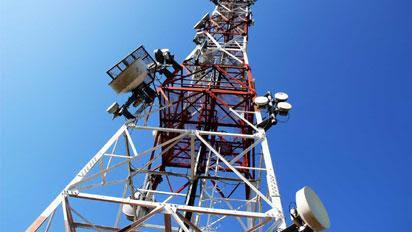The reality of African military spending in 2025 is shaped by geography, political dynamics, economic capability and regional threats.
Defence budgets across Africa are telling a story of evolving priorities. While some countries are pouring resources into modernising their armed forces, others are focusing on stabilising fragile internal structures or managing limited resources in the face of growing security threats. The top military spenders on the continent this year reflect this diversity in strategy and circumstance.
At the top of the list is Algeria, with a defence allocation of around $25 billion. This comes as little surprise given the country’s longstanding military tradition and its interest in maintaining regional dominance. Algeria has been particularly focused on modernising its air defence and acquiring advanced military hardware. With ongoing tensions involving its neighbour Morocco and instability in nearby Sahel countries, Algeria’s military investment is not only about deterrence but also about preparedness.
Morocco comes in second, spending approximately $13.4 billion on its defence sector. Much of Morocco’s budget is believed to go toward upgrading its air force and surveillance capabilities. The ongoing situation in Western Sahara continues to influence the country’s military posture, and Morocco has increasingly turned to Western suppliers for equipment. Its investment strategy also reflects a broader ambition to assert influence and ensure national security amid rising regional instability.
READ ALSO:Top 10 Countries With The Fastest Internet Speed In 2025
Egypt remains a heavyweight in African military affairs, with nearly $6 billion dedicated to defence this year. The country maintains one of the largest and most experienced armed forces in Africa. Egypt’s strategic location and ties to global powers play a major role in shaping its military spending. Its focus areas include naval strength in the Red Sea, border protection, and counterterrorism operations in the Sinai region. A significant portion of Egypt’s budget also supports joint military exercises and maintaining long-term partnerships with Western allies.
Nigeria, Africa’s most populous country, is allocating around $3.1 billion to its military in 2025. Faced with persistent insurgencies in the northeast, rising cases of banditry, and threats to oil infrastructure, Nigeria is investing more in surveillance, tactical response, and mobility. However, despite the budget size, questions persist about how effectively these resources are managed. Internal inefficiencies and corruption have often limited the impact of military spending, although reforms are slowly gaining traction.
Libya, despite enduring years of political fragmentation and conflict, ranks fifth with $3 billion in defence expenditure. The country’s spending is shaped largely by the need to rebuild military institutions and secure borders that have long been porous. Though rival factions still hold sway in different regions, recent moves toward unification have led to increased central oversight of defence funding. Libya’s military priorities include stabilising key infrastructure, reducing foreign military involvement, and restoring national cohesion.
South Africa, with a budget of roughly $2.3 billion, is the highest spender in Sub-Saharan Africa after Nigeria. The country faces fewer direct security threats than others on this list, but it maintains a capable and relatively advanced defence sector. Budget limitations in recent years have led to ageing equipment and recruitment challenges. Even so, South Africa continues to contribute to regional peacekeeping missions and has been increasing its focus on cyber defence and modernisation through strategic planning.
READ ALSO:Nine Countries With Nuclear Weapons In The World
Ethiopia’s military spending stands at about $2.1 billion this year. Following recent internal conflicts, the country is focused on rebuilding and restructuring its military forces. Spending is expected to go toward restocking supplies, increasing professionalism in the ranks, and improving border security, particularly with Sudan and Eritrea. Given its geographic location and history of regional involvement, Ethiopia’s defence capabilities are considered crucial not only for internal stability but also for regional balance.
Tanzania is allocating approximately 1.4 billion dollars to its defence sector in 2025. Though not frequently in the headlines for security concerns, Tanzania quietly invests in protecting its borders, maintaining internal stability, and supporting African Union peacekeeping operations. Its military also contributes to anti-narcotics efforts and maritime safety, given its coastal location. Recent moves show a growing interest in enhancing training programs and building stronger ties with foreign partners for logistics and support.
Tunisia matches Tanzania’s budget with a similar figure of 1.4 billion dollars. In Tunisia’s case, much of the defence spending is directed toward counterterrorism and intelligence operations. The country has faced several security incidents over the past decade and has prioritised preventing extremist activities, particularly in remote border areas. Efforts have also been made to modernise internal security structures and improve cybersecurity, often with the support of international partners who view Tunisia as a strategic bridge between Africa and Europe.
READ ALSO:5 Asian Countries Nigerians Can Visit Without A Visa
Kenya closes the list with a defence budget of $1.3 billion. The country has played a consistent role in regional peacekeeping, especially in Somalia. Its military priorities include border security, maritime surveillance, and improving response to terrorism-related threats in the northeastern regions. Kenya has been working to modernise its force structure, with growing investments in technology, training, and partnerships with countries that support its regional security mission.
Country Budget Military Rank in Africa
1 Algeria $25.0 billion 1st
2 Morocco $13.4 billion 4th
3 Egypt $5.9 billion 2nd
4 Nigeria $3.1 billion 3rd
5 Libya $3.0 billion 9th
6 South Africa $2.3 billion 5th
7 Ethiopia $2.1 billion 6th
8 Tanzania $1.4 billion 10th
9 Tunisia $1.4 billion 8th
10 Kenya $1.3 billion 7th
